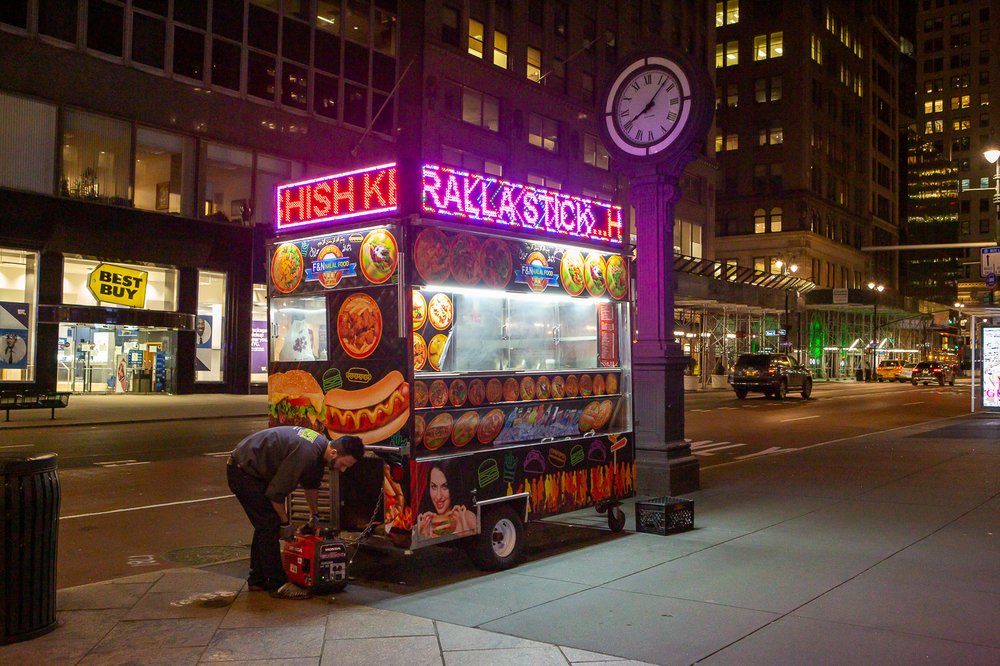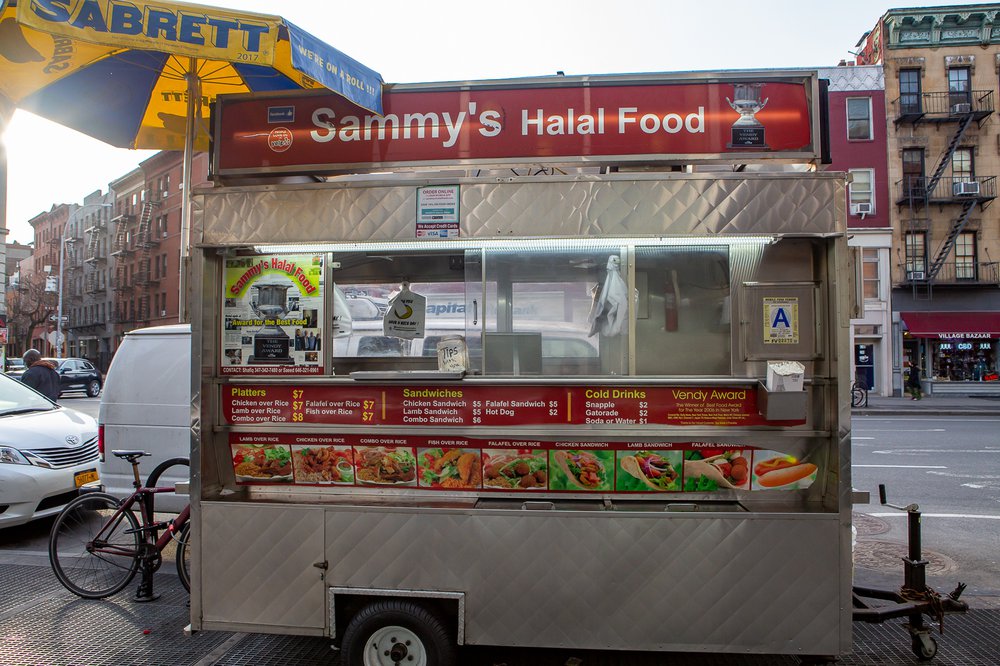Street Vendors Face Plummeting Business As NYC Streets Empty During Coronavirus PAUSE
March 24, 2020, 1:26 p.m.
"Without adequate relief efforts, New York City's street vendors are forced to continue to work, risking their health and well-being in the process."

As efforts to slow the spread of COVID-19 are impacting nearly every business in New York City, advocates and city councilmembers are urging the city to help street vendors during the crisis.
Street vendors live and die by foot traffic, selling passersby their morning coffee, lunchtime halal, or fruits and vegetables from produce stands. But as many people stay home, streets have emptied, with vendors seeing losses up to 80 percent, according to a letter city councilmembers sent to Mayor Bill de Blasio this week.
"Street vendors across the five boroughs are reporting loss in sales of up to 80%," City Councilmember Margaret Chin and seven other city councilmembers wrote. "Street vendors are primarily low-wage immigrant workers who rely on busy streets in order to survive day to day."
The mayor has previously announced small business loans and grant programming—but the councilmembers say, "the documentation requirements of the current grant and loan opportunities offered by NYC Small Business Services are next to impossible for them to meet."
A de Blasio spokesperson previously told Gothamist vendors may qualify for grants covering 40 percent of payrolls costs so long as they pay payroll taxes and have a payroll, but the councilmembers say many vendors are sole proprietors and don't meet the criteria for the programs.
The letter demands various programs for "frontline food workers whose needs are falling between the cracks of current city policy."
You can read the full letter here:
We ask for:
— Margaret S. Chin (@CM_MargaretChin) March 23, 2020
✔️ grant opportunities eligible for sole proprietors/street vendors/micro businesses
✔️emergency relief funds
✔️ suspension on enforcement of compliance violations that don't impact public health and safety
✔️and more
Full letter here 👇 pic.twitter.com/1NI825qtJf
Echoing the Street Vendor Project's demands, Chin and other politicians are calling for microbusiness grants that vendors would be eligible for, ensuring relief would be for workers regardless of immigration status, suspension of various city agency enforcement that does not significantly harm public health or safety, waiving outstanding tickets issued since January, and including vendors in the Department of Education's childcare plans for frontline workers.
"Without adequate relief efforts, New York City's street vendors are forced to continue to work, risking their health and well-being in the process," they wrote.
Mayoral spokesperson Julia Arredondo said state and federal officials must supplement resources the city provides.
“We know that this public health crisis will have an impact on our economy, and especially our small businesses," Arredondo said. "That is why we are offering various loans and grants for small businesses, and all options are on the table to ensure New Yorkers do not suffer and that we are protecting all of our small businesses. But, we cannot act alone. That is why we are working with our partners in State and Federal government to ensure resources in any COVID-19 relief bills get to New York City's small businesses."
The Street Vendor Project also has a set of broader demands during the crisis, including a statewide suspension of rent, mortgage, and utility payments, universal healthcare, and ceased Immigration and Customs Enforcement operations.
"It's a really challenging moment for everyone," the executive director of the project Mohamed Attia previously told Gothamist. "They're just coming out of the winter, and the winter is already a very slow season for vendors across the city."

One vendor near Union Square told Gothamist last week his boss had shuttered all but one of the company's halal carts, Rafiqi's, around the city due to slow business. Advocates fear immigrants—many who are in precarious businesses like street vending—face "severe" economic impacts due to the pandemic.
“Every business is affected by COVID-19," a vendor near Washington Square Park told us. "This has been my business for 15 years. Will I have to close? Maybe. Nobody knows."
Breakfast food cart vendor Victor Morcho said more than half of his business had dropped at the cart on Broadway near 14th Street, but he and his two employees planned to continue working.
"We have to," said Morcho, 52, of Astoria. "We have no choice."
Another vendor, 47-year-old Achilles Fabiatos, who sells waters and other bottled-drinks out of a cooler, said typically, he can make about $50 in a day, but had made just $5 by about 2 p.m. on a recent afternoon.
"There's no tourists. There's no people walking," Fabiatos said.